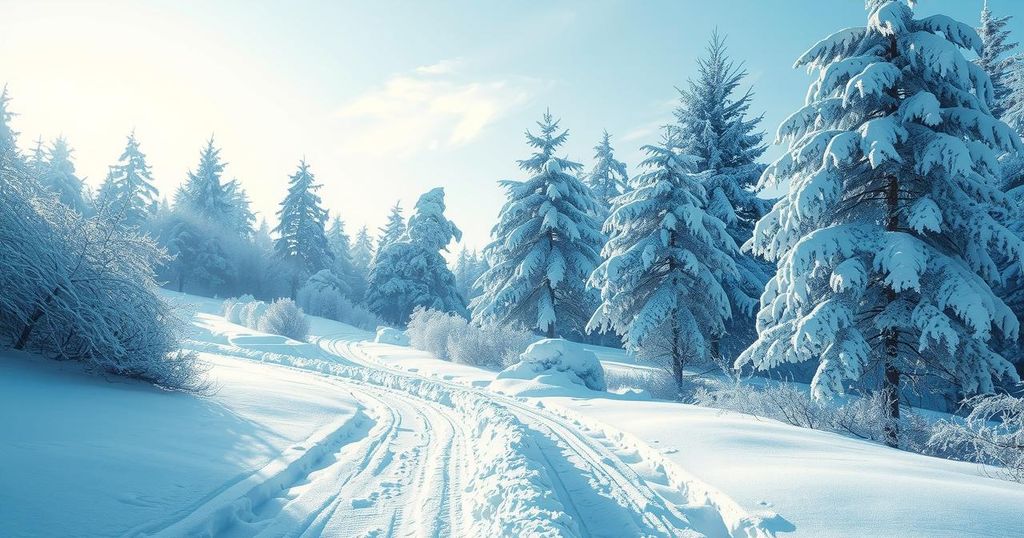Severe Cold Wave Sweeps Through Argentina, Chile, and Uruguay

- A powerful cold wave in southern South America has claimed at least 15 lives across Argentina, Chile, and Uruguay.
- Emergency measures, including shelter placements, have been activated in response to the extreme cold temperatures.
- Buenos Aires recorded its coldest temperature in over three decades, plunging to -1.9 degrees Celsius.
- Uruguay issued a nationwide ‘red alert’ following six fatalities due to the freezing conditions.
- Weather experts attribute this cold wave to a polar air mass migration from Antarctica, with potential climate change implications.
Severe Cold Wave Hits Southern Cone Countries
A severe cold wave is gripping Argentina, Chile, and Uruguay, having brought record-breaking low temperatures and claiming at least 15 lives so far. The chilling Arctic air, which originated in Antarctica, has made its way across the southern part of South America, prompting urgent action from local governments. Reports indicate that authorities have had to implement emergency measures, including the establishment of shelters and gas supply restrictions to safeguard the vulnerable populations.
Fatalities and Outages Due to Extreme Cold
In Argentina alone, at least nine homeless individuals have tragically died as a result of the freezing temperatures this winter, as highlighted by the non-governmental organization Proyecto 7. Buenos Aires, the capital, recorded a shocking low of -1.9 degrees Celsius (approximately 28.6 degrees Fahrenheit), marking the coldest temperature there since 1991. Furthermore, coastal city Miramar experienced snowfall for the first time in 34 years, while the southern town of Maquinchao reached an even grimmer -18C. The situation was exacerbated in Buenos Aires due to increased electricity demand, resulting in outages that left many residents without power for over a day.
Government Responses to the Crisis
Uruguay declared a nationwide ‘red alert’ after reporting six fatalities due to the cold wave, allowing President Yamandu Orsi’s government the ability to forcibly relocate homeless individuals to shelters. The winter chill has also affected Uruguay’s capital, Montevideo, which experienced its lowest recorded temperature since 1967 at just 5.8C on June 30. In addition, neighboring Chile has activated shelter plans for the homeless during this period of extreme weather, with the city of Chillan, located about 400 kilometers south of Santiago, hitting a bone-chilling -9.3C. Remarkably, snow fell in parts of the Atacama Desert—the world’s driest desert—for the first time in ten years, raising eyebrows about the unusual extent of this cold front.
Climate Change Concerns and Future Relief
Climatologist Raul Cordero from the University of Santiago commented with concern, “What transpired this week in Chile and the entire Southern Cone is primarily due to a displacement of polar air masses coming from Antarctica.” Notably, meteorologist Arnaldo Zuniga suggested that the unusual phenomenon of cold air masses stretching this far north could very well be linked to climate change. The region hopes for some respite, with forecasts predicting temperatures in Buenos Aires to rise to 12C, Montevideo to 14C, and Santiago to 24.7C over the next few days. A university student, Dafne Naranjo, expressed astonishment at this rapid change in weather patterns, stating, “I was quite surprised by the change from cold to hot—the change was very drastic.” In discussing wider climate trends, Cordero noted that heatwaves have now become more frequent than cold snaps, stating that “the frequency of heatwaves has tripled, whether in summer or winter, not only in the Southern Cone but globally.” Additionally, the government has had to suspend gas supplies to industries to prioritize household access, removing price controls on gas cylinders to mitigate the crisis as well.
This severe cold wave in Argentina, Chile, and Uruguay has highlighted critical challenges facing these countries, including record-low temperatures, tragic fatalities, and power outages. The response from governments has included emergency shelter measures and gas supply restrictions to protect vulnerable populations. As experts suggest links to climate change, the need for continued vigilance amidst changing weather patterns is more urgent than ever







